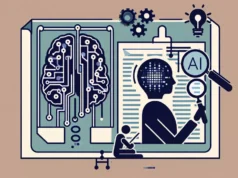In an evolving world that becomes more dependent on digital platforms each passing day, the urgent need for a more ethical online ecosystem calls for collective efforts from governments, corporations, educational institutions, and individuals at large. The rise of digital platforms has heralded a new age of global connectivity and unlimited access to a world of information. However, it also presents a slew of challenges and ethical dilemmas – setting a new stage for digital users to navigate.
The internet has become the crucible where knowledge, power, socio-economic growth, and both exposure and susceptibility to threat coexist in a delicate balance. Mishandling this power can have severe repercussions, from the harvesting and misuse of personal data to the spread of harmful disinformation or maintenance of oppressive regulations.
Public outcry over these issues has sparked an ethical debate on the rules that should guide the governance of our interconnected world. A Google report on Ethics in Technology has highlighted the need for all stakeholders to strive for an ethical internet environment where privacy, responsibility, transparency, and fairness are primary obligations.
Establishing Ethical Standards
Setting ethical standards and sticking to them is a non-negotiable necessity. From Silicon Valley giants like Google and Facebook to emerging start-ups, every digital player has a role in shaping the online environment’s ethical landscape. This process starts with corporations upholding the highest ethical standards in their operations.
In 2018, Google made headlines by stopping its A.I project with the Pentagon following staff protests over the ethical implications of their contributions. Similarly, Microsoft has established an A.I Ethics Committee for evaluating sales and deals. The message from these industry leaders is clear: technology should serve people, not exploit them.
Education and Academia
The role of educational institutions in promoting ethical online behavior is significant. By weaving cyber ethics into curriculums, institutions can raise future generations with the right values and principles for ethical digital behavior.
One example of an educational institution taking the lead is the Internet Ethics program at Santa Clara University, California, offering an interdisciplinary exploration of the internet’s ethical and policy-related challenges.
Government and Regulations
Government regulatory mechanisms need to evolve with the times and address the unique challenges posed by the rapidly changing digital landscape.
In the realm of data privacy, the European Union has set noteworthy benchmarks with its General Data Protection Regulation (GDPR). The U.S., too, has made strides through the California Consumer Privacy Act (CCPA). Such regulations put the digital users’ rights at the forefront and serve as a deterrence for unethical practices.
Individual Responsibility
Privacy protection, online etiquette, and respectful communication are responsibilities that fall on each internet user. The fight against cyberbullying, illegal content, and hate speech, for example, relies heavily on reporting by individual users. The ethical behavior of each user ultimately shapes the collective online community.
Multilateral Efforts
Promoting an ethical online environment cannot be the job of a single entity. It requires collective efforts and collaboration. The World Economic Forum’s Global Council on the Ethics of Technology is a testament to this, bringing together key stakeholders to ensure technology’s positive contribution to society.
For all its immense potential and benefits, the digital age is also fraught with ethical dilemmas demanding a collective response. As we embrace this new era, united efforts from every sector will be crucial in building an ethical online world that’s equitable and inclusive.
Sources:
1. Google, “Perspectives on Issues in AI Governance,” 2019.
2. Stanford University, “Google and the Pentagon: Ethics of AI in War,” 2018.
3. Microsoft, “AI and Ethics: The Big Questions,” 2019.
4. Santa Clara University, “Internet Ethics: Views from Silicon Valley,” 2019.
5. European Commission, “Data Protection in the EU,” 2018.
6. World Economic Forum, “Global Technology Governance Report,” 2020.






